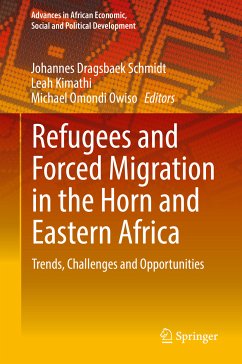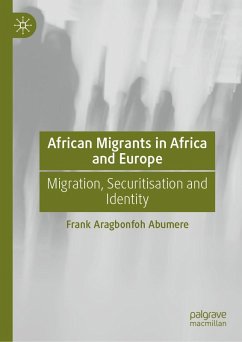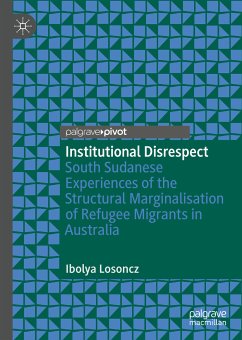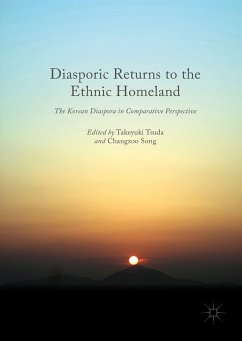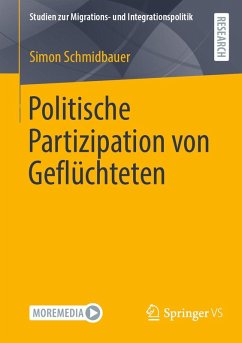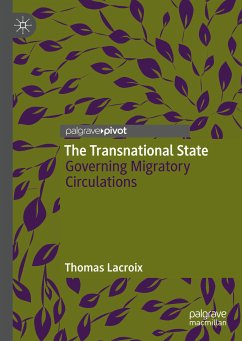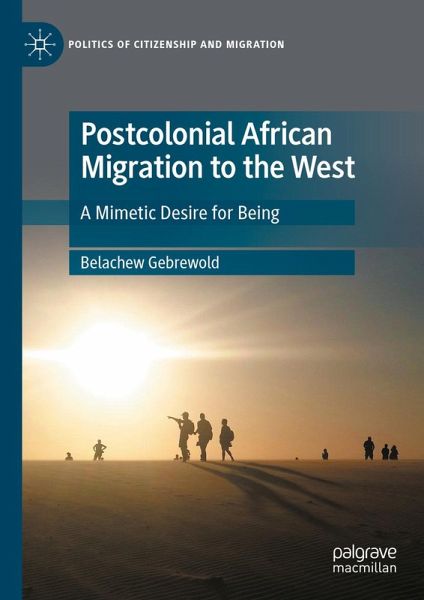
Postcolonial African Migration to the West (eBook, PDF)
A Mimetic Desire for Being
Versandkostenfrei!
Sofort per Download lieferbar
112,95 €
inkl. MwSt.
Weitere Ausgaben:

PAYBACK Punkte
56 °P sammeln!
Postcolonial African migration to the West is not only a spatial movement in search of material and physical security but also an expression of the mimetic desire for being by imitating the West or "whitening" oneself against the background of the dehumanizing historical legacies of slavery, colonialism, and Western dominance. It is a flight from oneself, from perceived inadequacies. To migrate to the West is an expression of the desire for being, not through detachment from the "fascinating" West but rather through adoration and imitation of its lifestyle, beauty ideals, and soft and hard pow...
Postcolonial African migration to the West is not only a spatial movement in search of material and physical security but also an expression of the mimetic desire for being by imitating the West or "whitening" oneself against the background of the dehumanizing historical legacies of slavery, colonialism, and Western dominance. It is a flight from oneself, from perceived inadequacies. To migrate to the West is an expression of the desire for being, not through detachment from the "fascinating" West but rather through adoration and imitation of its lifestyle, beauty ideals, and soft and hard power, and by living in the West. The model (the West) builds ubiquitous anti-migrant physical and virtual fences, which the imitator tries to overcome. The more the model re-strengthens these fences, the more the imitator tries to scale them. The anti-migrant fences are the meeting point of the model's perceived superiority, admirability, and desirability on the one hand, and on the other hand the imitator's inferiority complex and inner tension between the paradoxical desire for detachment from the model and its passionate imitation at the same time. This book argues that African migration to the West will continue even in the absence of poverty, conflicts, and climate change because it is also about the mimetic desire for being.
Dieser Download kann aus rechtlichen Gründen nur mit Rechnungsadresse in A, B, BG, CY, CZ, D, DK, EW, E, FIN, F, GR, HR, H, IRL, I, LT, L, LR, M, NL, PL, P, R, S, SLO, SK ausgeliefert werden.




